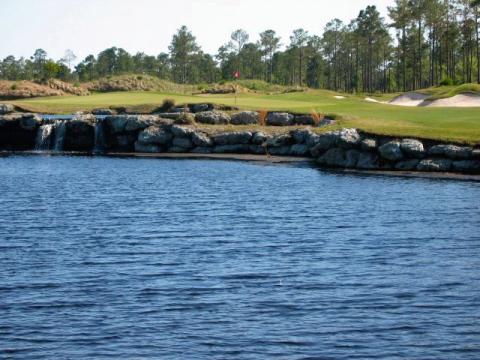We have reported here in recent weeks, for example, the travails of the Ginn Resorts organization, which defaulted on a $635 million loan to Credit Suisse. Other developers have stepped in to take over some of the Ginn properties, including the lush Laurelmor in North Carolina.
There is no denying that times are tough in golf communities as they are elsewhere, but the New York Times and the other media overstate the carnage. In their examples of residential golf courses that have closed, the Times article points to California, Las Vegas and Florida. That is a little like doing an article on "Growth of Poverty around the World" and using as examples only Calcutta and Zimbabwe.
The Times article, which you can access by clicking here, reminds us of two things: First, don't trust everything you read and, second, consider purchasing property only in a community where the amenities are built and functioning, and where the developer or the club owners, if the golf club has been turned over to them, have deep pockets. I can help you separate the wheat from the chaff if you are interested in taking advantage of the lowest prices in four or five years (and that goes for club initiation fees as well). Just click on the Contact Us button at the top of the page, and I will get back to you promptly.
























